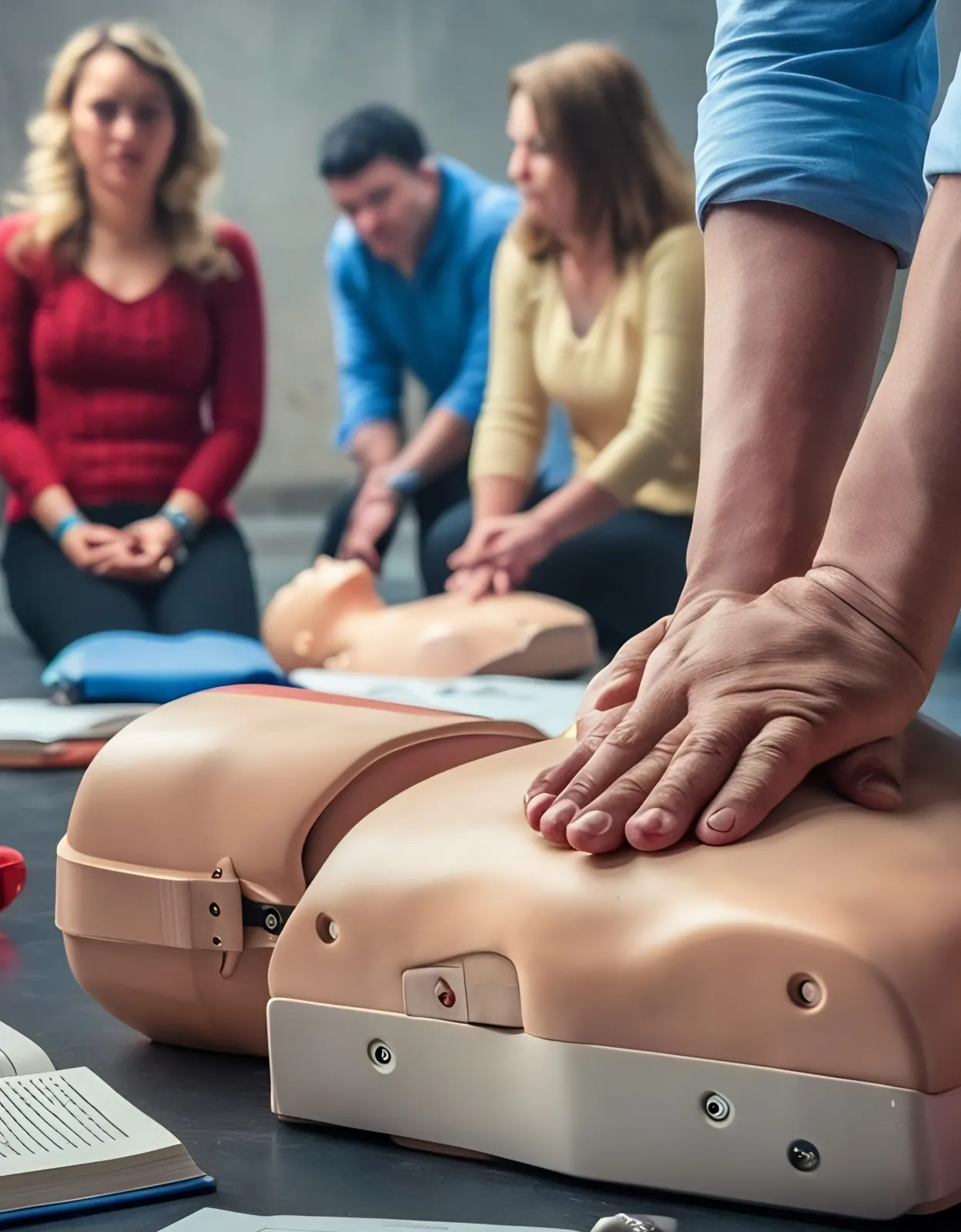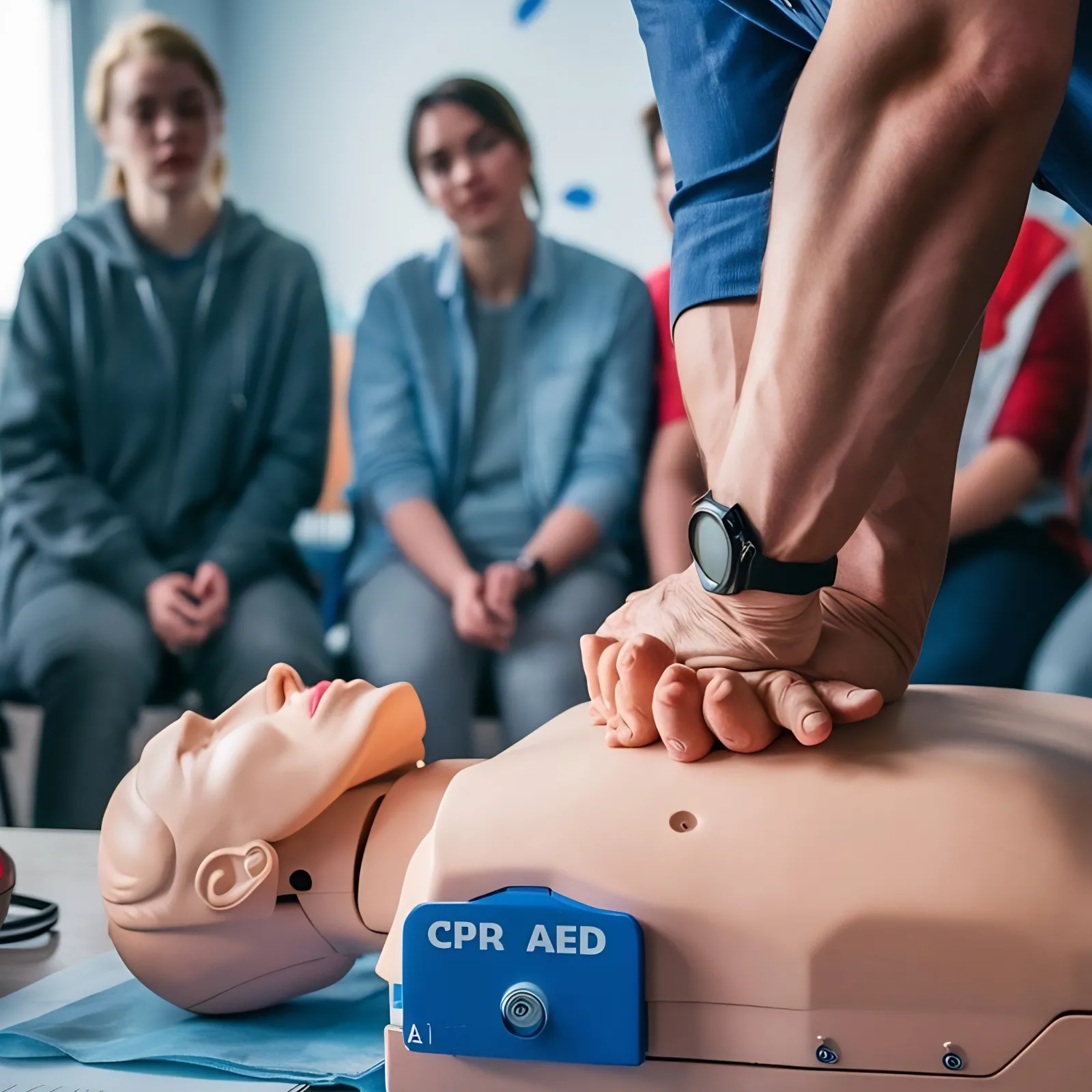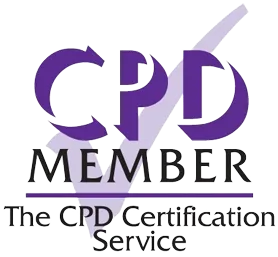29 Mar 2025
Recommended
Minimum 30 mins
Course
Access
Certification
Voiceover

The Basic Life Support (BLS) course is an essential training program designed to equip healthcare professionals with the knowledge and skills to respond effectively to life-threatening emergencies. Aligned with the Skills for Care Care Certificate standards and the latest UK guidelines, this course focuses on recognising critical conditions, performing cardiopulmonary resuscitation (CPR), and using an Automated External Defibrillator (AED).
Participants will learn life-saving techniques for adults, children, and infants, with an emphasis on managing cardiac arrest, choking, and obstructed airways. The course also covers scene assessment, ensuring personal safety, legal compliance, and maintaining accurate documentation during emergencies. Effective communication strategies for managing high-pressure situations are also a key component.
By the end of this course, healthcare professionals will be prepared to handle emergencies with confidence, ensuring timely and effective interventions that optimise patient outcomes.

 £0
£0
Learning Outcomes.
By the end of this course,participants will be able:
To understand the principles and importance of Basic Life Support in emergency care.
To identify critical emergencies, such as cardiac arrest and choking, requiring immediate intervention.
To perform high-quality CPR on adults, children, and infants according to the latest guidelines.
To safely and efficiently use an Automated External Defibrillator (AED) in conjunction with CPR.
To apply effective techniques for managing obstructed airways and choking incidents.
To maintain accurate documentation, adhere to legal requirements, and ensure confidentiality during emergency care scenarios.
Course
Contents.
01
Overview of BLS, its components, and its significance in emergency care.
03
Understanding the differences in performing CPR across age groups.
05
Proper use of AEDs during resuscitation scenarios.
08
Effective verbal and non-verbal communication until professional help arrives.

06
Strategies for ensuring rescuer safety while delivering emergency care.
09
Legal and ethical requirements for accurate documentation and maintaining patient confidentiality.
02
Techniques for early recognition using the DR H ABC approach and AVPU scale.
04
Causes, symptoms, and interventions for airway obstruction, including back blows and abdominal thrusts.
07
Evaluating environmental risks and creating a safe space for emergency interventions.
10
Bringing together all aspects of BLS to ensure readiness for real-life emergencies.
The Basic Life Support (BLS) course equips healthcare professionals with critical skills to manage life-threatening emergencies, including CPR, AED use, and choking interventions. By focusing on safety, effective communication, and compliance with UK legal standards, this course ensures participants are prepared to deliver timely, high-quality care in emergencies, contributing to improved patient outcomes and professional confidence.
 Summary
Summary


